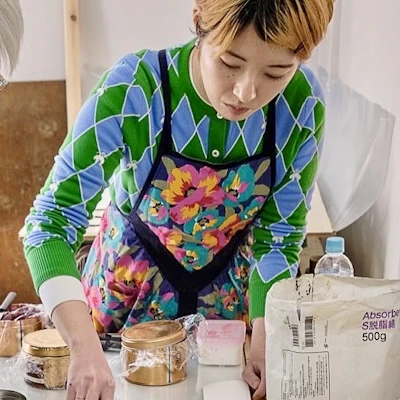01.19MON
2024.05.08
Relay Column: The Closet as a Church (Hinako Kagawa)

PROFILE

Hinako Kagawa
Born in 1997 in Tokyo. Artist. Completed a master's degree in Printmaking at Tokyo University of the Arts.
Creates works centered around lithography and oil painting, focusing on themes of feminism and relationships. Enjoys cooking, fashion, and gaming.
Illustrated the book "フェミニスト、ゲームやってる" (written by Ginga Kondo, published by Shobunsha), which will be released on May 24, 2024.
Do you like clothes? I absolutely adore them.
Dressing up can be fun, and at times, it can be stressful. I think it's because you are judged by society based on what you choose to wear. It's fun because someone is watching, and it's stressful because someone is watching. Despite this, why do people love clothes and the act of dressing up so much?

I went to an all-girls school during my middle and high school years. There was no uniform rule so everyone wore what they liked, but even in a space only with girls, there was something like gender, and everyone expressed that through their clothing. It could be something fixed or slightly different each day. It went beyond mere freedom of dress; it was about deciding and expressing on your own how you intend to interact with others and how you want to be treated as a gender, which could change daily. At this girls’ school, there was no specific need to explain one’s gender identity; being a woman or a man, or oscillating between a boyish girl and a girly boy was not that hard.
CONCEPT VIDEO
"fashion tech news" Unveils New Logo & Concept Video
TOP ARTICLES
RELATED ARTICLES
CONCEPT VIDEO
"fashion tech news" Unveils New Logo & Concept Video
CONTACT
If you have any questions or enquiries, please enter your details in the form below.









.jpg?w=400&fm=webp)
.jpeg?w=400&fm=webp)






.png?w=400&fm=webp)


